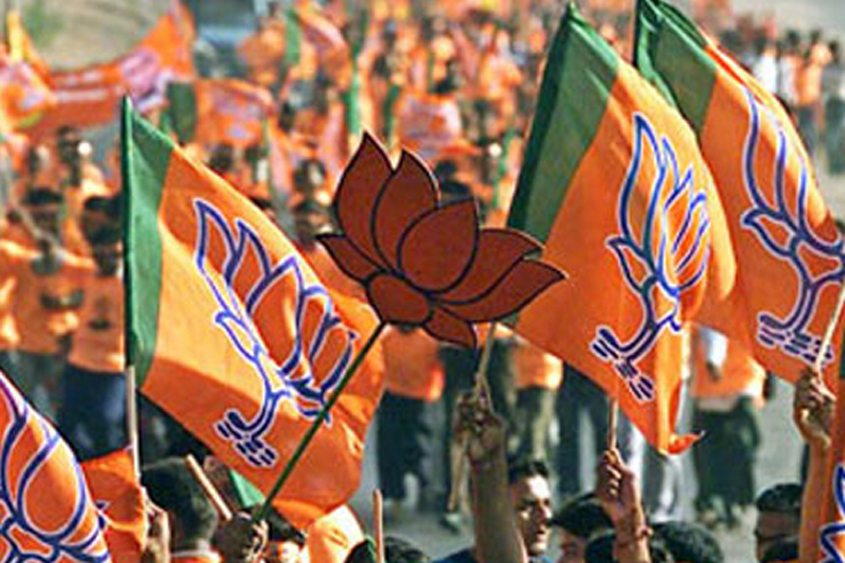One of the biggest surprises of the Uttar Pradesh Assembly elections was the BJP’s good performance in Assembly constituencies with 30-50% of Muslim votes, so much so that the party ended up winning “Muslim” constituencies such as Deoband, Bahraich, Balrampur, Shrawasti, Shamli, Bijnor, Moradabad City, Muzaffarnagar, among others.
In Bahraich, where the Muslim population is 34%, Anupam Jaiswal of BJP secured 87,479 votes, while Rubab Sayeda of SP came second with 80,777 votes and Ajeet Pratap Singh of BSP stood third with 36,325 votes. In Shamli, where the Muslim population is over 40%, BJP’s Tejendra Nirwal got 70,085 votes, Pankaj Kumar Malik of Congress stood second with 40,365 votes and Bijendra Singh Rashtriya Lok Dal came third with 33,551 votes.
Similar was the case in Bijnor where the Muslim population is 43%. Here, Suchi of BJP secured 105,548 votes, while Ruchi Vira of SP stood second with 78,267 votes and Rashid Ahmad of BSP came third with 49,788. In Balrampur, where the Muslim population is 37%, BJP’s Palturam stood first with 89,401 votes, while Shivlal of Congress came second with 64,541 votes and Ram Sagar Akela of BSP third with 26,011 votes.
However, in Saharanpur, BJP stood third with Manoj Chaudhary scoring 58,752 votes, while Congress came first with Masood Akhtar scoring 87,689 votes.
Abdul Rasheed, president of BJP’s Minority Morcha said, “We don’t see elections as a Hindu-Muslim fight. We neither distributed poll tickets to appease any community. These voting patterns signify that Muslims now don’t vote only based on communal lines.” “Development is more important issue for Muslims now. It shows that minorities have put their trust in Prime Minister Narendra Modi’s ‘Sabka Saath Sabka Vikas’ slogan. For years, Muslims have been promised Taj Mahal luxuries, but got nothing more than huts made of mud. But the states where BJP has been in power show that development work rose manifold and the policies were implemented cutting across castes and religions.”
“Education, health, benefiting small-scale business and industries are the issues that affect all people and BJP has proved to be successful through their work on these issues. Muslims have voted for BJP. They know that they won’t be neglected by BJP like other political parties have. BJP did not let any communal clash or riot break out when it was in power,” said Rasheed. However, Sanjay Kumar of Centre for Studies of Developing Societies, said, “In 2014 Lok Sabha elections, 8-10% of Muslims voted for BJP. The same trend can be seen in UP, where 10-12% of Muslims voted for the party. Contrary to popular belief that Muslims don’t vote for BJP, there is a tiny proportion of Muslims who do vote for BJP,” he said.
Dr Tasleema Bano, a BJP worker, said, some Muslims voted for BJP because they too wanted to get rid of SP’s gunda raj. “Safety and security is more important to people and the law and order situation has drastically deteriorated in Uttar Pradesh. Many Muslim women voted for BJP because they want to feel safe,” she said. Sanjay Kumar, however, said, “Yes, in constituencies with sizeable Muslim population, BJP has won but that does not mean that Muslims in these constituencies unanimously voted for BJP. The other non-Muslim community votes in these constituencies could have consolidated in favour of BJP. But then we can’t say that this proves polarisation played a big role because there are only 140 such constituencies in UP where Muslims have a sizeable population which can range between 20-30 %. BJP has also won in other constituencies where the Muslim community has no significant role in vote share which proves that there are other factors than polarisation that helped BJP secure such a big win.”
However, suggesting the division of Muslim votes as a factor behind BJP’s win in these constituencies, Hilal, a political analyst said, “It is a fact that the majority of Muslims were confused between the SP-Congress alliance and BSP. The indecisiveness played in favour of the BJP as the minority vote could not consolidate against it, though the popular sentiment was said to be such.”

